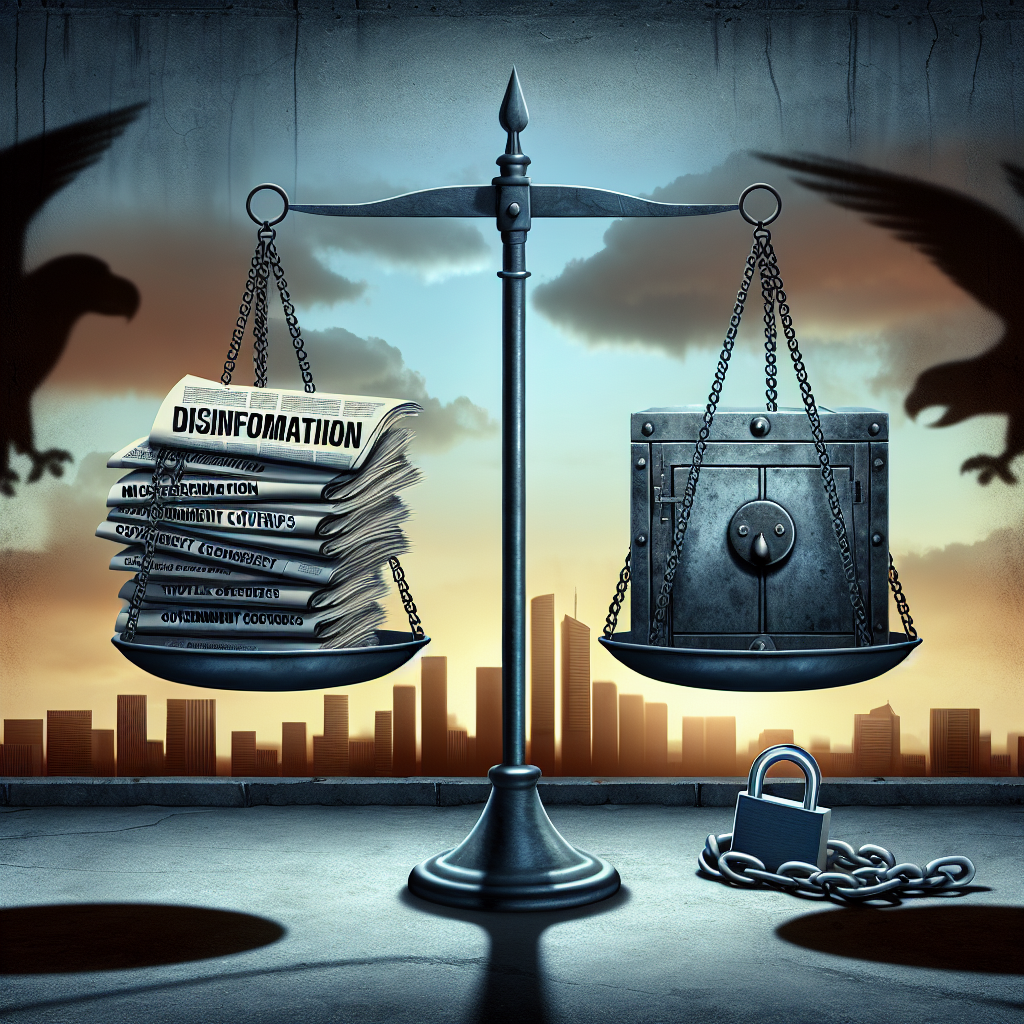Hannah Arendt eloquently highlighted the dangers of a poorly informed populace in her reflection on totalitarian regimes. According to her, when individuals are bombarded with lies and misinformation, they lose their ability to form coherent opinions, resulting in a society unable to think critically or judge effectively. This kind of cognitive disarray creates an environment where authoritarian powers can exercise control without resistance. The implications of Arendt’s insights are particularly relevant in today’s digital age, where free speech is increasingly under siege, and government authorities seek greater regulatory control, thereby compromising the freedoms of expression that underpin democratic societies.
Hillary Clinton and various political figures have underscored a widespread fear surrounding unregulated online speech, advocating for “total control” to safeguard user safety. This sentiment transcends party lines, finding resonance among both Republicans and Democrats who wish to amend or eliminate Section 230 of the Communications Decency Act, which protects online platforms from liability regarding the content shared by users. The discussions around censorship highlight a critical tension between maintaining civil liberties and imposing control for perceived societal good. Such ideological battles, while cloaked in different narratives, often share a common goal of expanding governmental reach into the realm of speech and expression.
The internet has emerged as a bastion for free thought and dialogue, allowing voices that challenge mainstream narratives and offering a platform for politically incorrect views. Despite the prevalence of misinformation, advocates believe that the solution lies not in silencing dissent but in fostering open discourse. Drawing on historical wisdom from Justice Brandeis, the argument is made that “more speech” can counter disinformation rather than resorting to censorship. This view, however, collides with contemporary government perspectives that equate various forms of online speech with real-world threats, compelling citizens to surrender certain freedoms for the sake of national security—a trade-off that often leads to unintended consequences.
Governments have a history of adopting measures designed to preserve national security, which, over time, evolve into instruments of social control. Once governmental authority is expanded under the auspices of protecting the public, the risk arises that these powers may be wielded for malicious purposes against dissenting voices. This pattern has been observed in various contexts including counter-terrorism and public health initiatives, where ostensibly benign measures ultimately facilitate increased surveillance and infringements on civil liberties. The growing unease regarding government actions against those who challenge authority underscores the critical nature of free expression and the dangers of governmental overreach.
A particularly alarming aspect of this multifaceted issue is the increasing use of mental health assessments as a means of controlling dissent. Local and federal authorities may misinterpret or manipulate mental health diagnoses to target individuals who exhibit “unacceptable” behavior—an approach reminiscent of the ways totalitarian regimes have historically marginalized dissidents. As the line between mental health intervention and political suppression blurs, the potential for the government to use such classifications as a pretext for monitoring, detaining, or otherwise neutralizing critics of its policies raises urgent questions about the protection of individual freedoms.
Ultimately, this trend reflects a larger shift towards a society that deems non-conformity as a deviation that must be corrected. Institutionalizing a framework that pathologizes dissent risks categorizing influential figures throughout history—such as civil rights leaders and anti-establishment activists—as mentally unfit. This process of delegitimization further exacerbates the chilling effect on free speech, fueling silence where there should be open critique. The historical warning posed by authoritarianism serves as a stark reminder: allowing such practices to flourish could lead to a society unrecognizable from our foundational ideals of liberty and justice—an outcome that society must actively resist to preserve its democratic values.

